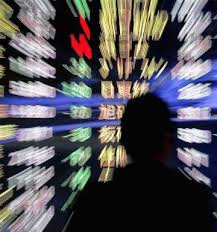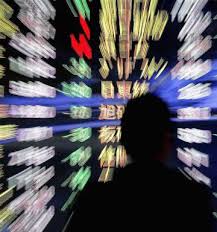
Within just three months, the attempt of setting up a Nasdaq-style stock market by China is apparently not doing as well as expected.
There were a few hit initial public offerings (IPO) and initial huge gains in some stocks after the launch of the Star Market by the Shanghai Stock Exchange at the end of July this year. However the exchange was forced to ditch its efforts of launching a new index based on the market which was scheduled to be launched on Wednesday.
According to a statement issued by the exchange recently, the reason for the cancellation of the index was the absence of enough number of companies on the board that could justify the launch of an index and those that were present were "relatively too small" in size.
Compared to all of the other major exchanges in China that have their own indexes, the number of companies listed at the Star Market exchange was miniscule. For example, there are more than 3000 companies that offer their stocks at the main market in Shanghai and a tech-focused market in Shenzhen combined together.
The exchange said that investors need to critically watch any index involving Star Market components. It added that a better representation of the market can only be possible if there is an index and investors have to wait till such time that such an index is launched.
The exchange however had a cracking opening as stocks listed there increased at 140 per cent on an average on the very first day of trading. Stocks of a domestic Chinese company named Anji Microelectronics Technology increased by as much as 400 per cent.
But according to data from Wind, a Chinese financial information provider, about a third or more of the value they held at their peaks had been lost by more than 90 per cent of the stocks on the Star Market as of Wednesday.
"Apparently, the investor enthusiasm has faded," said Mark Huang, an analyst for Bright Smart Securities in Hong Kong. The value of the shares trading at the Star Market are returning to more "reasonable levels" even though they are still valued quite higher than normal, he added.
Analysts view the launch of the Star Market to be a part of China’s strategy to gain superpower status in the field of technology. The aim of setting up the Star market exchange was to help the domestic tech companies to benefit from the vast wealth that is at the hands of the local investors of China. Beijing also wants global leaders like Alibaba and Tencent that are listed at new York and Hong Kong, to come back to the Chinese stock exchanges.
It is most likely that the investors would be eagerly waiting to see the earning reports of companies that are listed at the Star Exchange which would give the investors and analysts a chance to see the quality of the companies listed at the exchange.
(Source:www.cnn.com)
There were a few hit initial public offerings (IPO) and initial huge gains in some stocks after the launch of the Star Market by the Shanghai Stock Exchange at the end of July this year. However the exchange was forced to ditch its efforts of launching a new index based on the market which was scheduled to be launched on Wednesday.
According to a statement issued by the exchange recently, the reason for the cancellation of the index was the absence of enough number of companies on the board that could justify the launch of an index and those that were present were "relatively too small" in size.
Compared to all of the other major exchanges in China that have their own indexes, the number of companies listed at the Star Market exchange was miniscule. For example, there are more than 3000 companies that offer their stocks at the main market in Shanghai and a tech-focused market in Shenzhen combined together.
The exchange said that investors need to critically watch any index involving Star Market components. It added that a better representation of the market can only be possible if there is an index and investors have to wait till such time that such an index is launched.
The exchange however had a cracking opening as stocks listed there increased at 140 per cent on an average on the very first day of trading. Stocks of a domestic Chinese company named Anji Microelectronics Technology increased by as much as 400 per cent.
But according to data from Wind, a Chinese financial information provider, about a third or more of the value they held at their peaks had been lost by more than 90 per cent of the stocks on the Star Market as of Wednesday.
"Apparently, the investor enthusiasm has faded," said Mark Huang, an analyst for Bright Smart Securities in Hong Kong. The value of the shares trading at the Star Market are returning to more "reasonable levels" even though they are still valued quite higher than normal, he added.
Analysts view the launch of the Star Market to be a part of China’s strategy to gain superpower status in the field of technology. The aim of setting up the Star market exchange was to help the domestic tech companies to benefit from the vast wealth that is at the hands of the local investors of China. Beijing also wants global leaders like Alibaba and Tencent that are listed at new York and Hong Kong, to come back to the Chinese stock exchanges.
It is most likely that the investors would be eagerly waiting to see the earning reports of companies that are listed at the Star Exchange which would give the investors and analysts a chance to see the quality of the companies listed at the exchange.
(Source:www.cnn.com)














